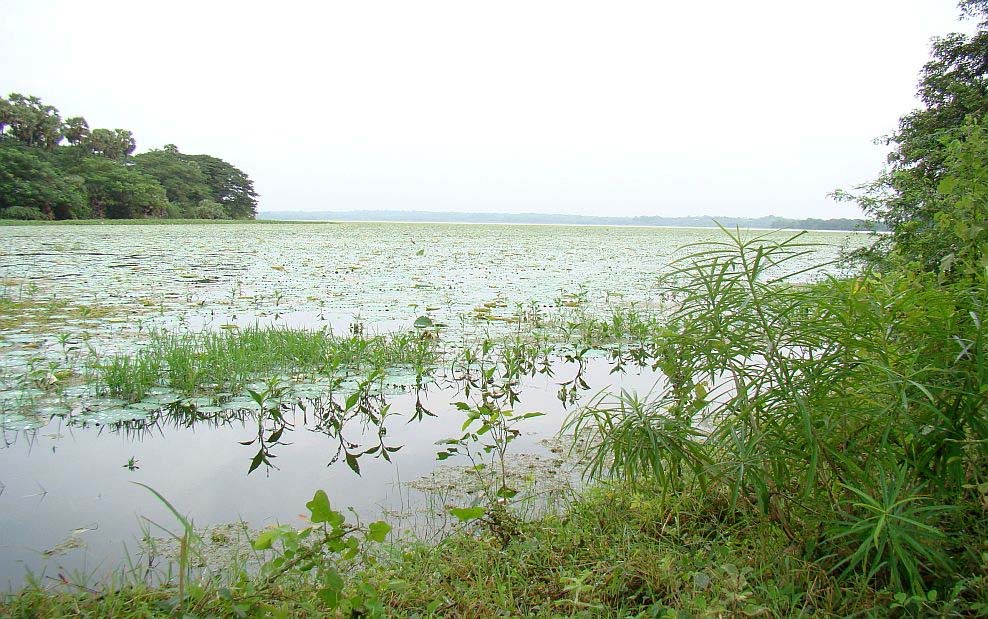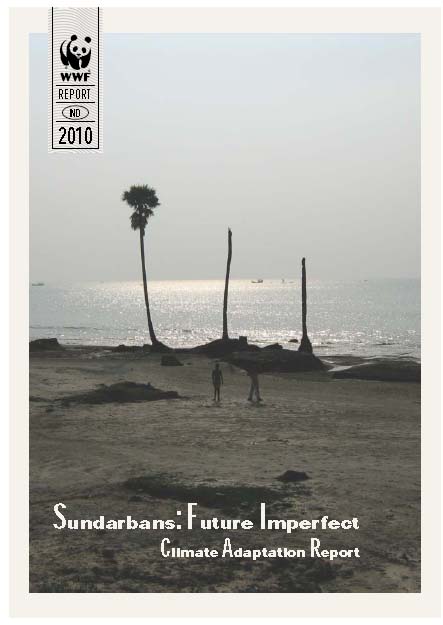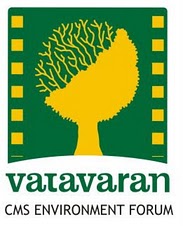/topics/wildlife
Wildlife
Conservation of Ousteri lake in Puducherry - Draft Comprehensive Management Action Plan by SACON
Posted on 26 Jul, 2011 11:54 AM This Comprehensive Management Action Plan by the Salim Ali Centre for Ornithology and Natural History (SACON) deals with the various conservation and management interventions that can be taken up for long-term sustainability of Ousteri lake, the largest lake in Puducherry.
This Comprehensive Management Action Plan by the Salim Ali Centre for Ornithology and Natural History (SACON) deals with the various conservation and management interventions that can be taken up for long-term sustainability of Ousteri lake, the largest lake in Puducherry.
Wetlands in urban areas have always been exploited for several purposes due to anthropogenic activities. However, such activities may lead to alteration of wetland characteristics and thus cause changes in species composition and density. The Ousteri Lake (Oussudu Eri in Tamil) is rich in flora and fauna and is known to provide several ecological services including recharging underground aquifers and providing several livelihood options for the local community.
Kailash sacred landscape conservation initiative - Feasibility assessment report by ICIMOD
Posted on 25 Jul, 2011 03:19 PM This publication by International Centre for Integrated Mountain Development (ICIMOD) deals with Kailash Sacred Landscape Conservation Initiative (KSLCI), a project that seeks to conserve and sustainably manage a highly unique and special landscape through the application of trans-boundary ecosystem management approaches.
This publication by International Centre for Integrated Mountain Development (ICIMOD) deals with Kailash Sacred Landscape Conservation Initiative (KSLCI), a project that seeks to conserve and sustainably manage a highly unique and special landscape through the application of trans-boundary ecosystem management approaches.
This region, like much of the rest of the Hindu Kush-Himalayas, faces many challenges, not the least of which are global warming, globalisation and environmental degradation. The Kailash region is considered sacred to five major religions and to a large number of people in Asia and throughout the world. This area is historically, ecologically, and culturally interconnected and is the source of four of Asia’s most important rivers.
The KSLCI is an attempt on the part of the three neighbouring countries of India, China and Nepal to join hands to help preserve the unique biological diversity, the many ecosystem goods and services, and the value-based cultural heritage of one of the most revered and sacred landscapes in the world.
Sanctuary Asia invites nominations for Sanctuary Wildlife Awards 2011 – Apply by October 31, 2011
Posted on 29 Jun, 2011 12:31 PMThe sanctuary wildlife awards were instituted to recognise the best in the field of wildlife conservation and to celebrate the unsung heroes of India who are defending her wildernesses and consequently safeguarding her food and water security.
The award categories includes:
- Lifetime service award - An individual whose life has been devoted to the protection of wildlife species or their habitats on the Indian subcontinent
Taking steps toward marine and coastal ecosystem based management: An introductory guide by UNEP
Posted on 25 Jun, 2011 09:28 AMAn important aim of this guide is to facilitate the implementation of UNEP’s overarching Ecosystem Management Programme and new Marine and Coastal Strategy in countries and regions in line with its Medium Term Strategy 2010-13.
Assessment study of impact and sustainability of Nirmal Gram Puraskar – A report by CMS Environment
Posted on 24 Jun, 2011 11:02 PMNGP was initiated in Oct 2003 to encourage Panchayati Raj Institutions (PRIs), block and districts to take up sanitation promotion, a post achievement, award-cum-fiscal incentive scheme. The eligibility criteria for the PRIs to receive NGP include: Gram Panchayats, Blocks and Districts, which achieve 100 per cent sanitation coverage in terms of: (1) 100 per cent sanitation coverage of individual households (2) 100 per cent school and anganwadis sanitation coverage (3) Free from open defecation and (4) Clean environment maintenance (liquid and solid waste management).
Sunderbans - A climate adaptation report by World Wildlife Fund India
Posted on 09 May, 2011 09:23 PM Beginning in 2005, WWF-India has conducted dozens of personal interviews to record how climate change impacts people's lives here and now. These perceptions demanded that s
Beginning in 2005, WWF-India has conducted dozens of personal interviews to record how climate change impacts people's lives here and now. These perceptions demanded that s
Volunteers required for vigilance in the Sanjay Gandhi National Park (SGNP) forest region, on MahaShivratri, 2nd March 2011
Posted on 25 Feb, 2011 11:37 AMLike every year a vigil will be kept by various individual volunteers, NGOs along with Forest Department (FD) at forest areas falling in Mulund, Thane, Borivali for Sanjay Gandhi National Park (SGNP) & Vasai region for Tungareshwar Wildlife Sanctuary (TWLS). As you may be aware during MahaShivratri day, people enter from different directions to visit the temples around these forests. Some get inside the forests to gamble, drink, roam about, also deliberately put fire... while doing so the wildlife gets disturbed, forest fires occur, litter is spread all around, etc. Every year vigil has reduced all this to a great extent.
6th CMS Vatavaran, Environment and Wildlife Film Festival and Forum 2011 - Call for Entries - Apply by July 31, 2011
Posted on 21 Feb, 2011 10:51 AM India's premier environment and wildlife competitive film festival, CMS VATAVARAN will be organised from 06-10 Dec, 2011 at New Delhi.
India's premier environment and wildlife competitive film festival, CMS VATAVARAN will be organised from 06-10 Dec, 2011 at New Delhi.
Entries:
Entries are invited from environment and wildlife filmmakers for 10 Indian and 08 International categories.
Nilgiri Wildlife and Environment Association (NWEA) is looking for volunteers for Wildlife Census 2011 at Nilgiris
Posted on 14 Feb, 2011 10:08 AMNilgiri Wildlife and Environment Association (NWEA) is conducting a Wildlife Census for Nilgiris North, Nilgiris South and Gudalur Forest Divisions from February 25 -27. This is a count for all mammals.
Over 100 volunteers are needed for this count which is simultaneously done in three Forest divisions with support and guidance of the Forest Department.
Volunteering opportunity in a wetlands project near Hampi
Posted on 24 Jan, 2011 06:41 PMThis pond and wetland is the first stage of creating a wildlife field station and research center for WildlifeSOS in Ramdurga Valley.
The wetland will be both for habitat and as a safe water source for wildlife. Concurrent with the construction of the wetland will be the design process for the field station and site. Volunteers will assist in both these processes with the primary task of completing construction of the wetlands. Long afternoon breaks and evening's slow relaxation will be time for learning, discussions and wandering conversations. Areas of discussion may include: Permaculture basics (principles, flows, patterns, zonation), site analysis, water, soil, plants and cropping, animals systems, appropriate technology, invisible structures (economic, cultural and social systems), design and local to global sustainability.





